
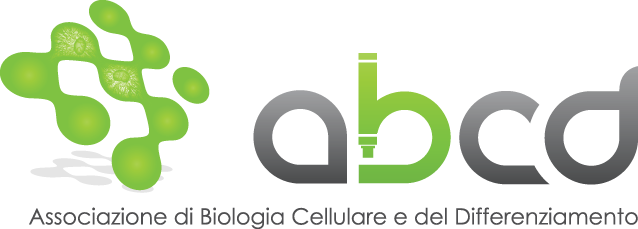
ABCD 2023 • The Biennial Congress of the Italian Association of Cell Biology and Differentiation
Paestum | Italy • 21-23 September 2023




We are pleased to announce the upcoming ABCD National Congress to be held in Paestum, a history-rich location in the south of Italy, on 21-23 September 2023.
After the pause imposed by the pandemic, we are excited to resume with our Conference, which brings together scientists from across the world and offer an invaluable opportunity to discuss scientific issues in the fields of cell biology, development and differentiation in a friendly and collaborative environment.
The 2023 edition of the ABCD Congress features a prominent list of speakers lecturing at keynotes and plenary sessions that will be dedicated to:
The Congress is open to all researchers from Italy and abroad: join us to discuss science with prominent scientists in the field!
Please visit this website to get more details about the preliminary scientific Programme, the Congress Venue and the application procedures.
Following a successful tradition, the congress will be preceded by a pre-congress meeting, on 20-21 September, reserved for post-docs and Ph.D. students who are under 35 years at the date of the congress. Keynote lectures will be held by Tom Kirchhausen (Harvard Medical School, USA) and Sandra Schmid (CZ Biohub, San Francisco, USA).
Informal interactions between the invited speakers and the young participants will take place during the sessions and at dinner, which will be followed by a round table moderated by the science philosopher and communicator Telmo Pievani.
The Luca Daveggio prize will be awarded to the best oral presentation selected during the premeeting. Fellowships are available to Post-docs and Ph.D. students accepted to attend the pre-congress meeting to help defray their lodging and travel costs.
Andrea Ballabio
(TIGEM, Naples, Italy)
Francesco Cecconi
(Danish Cancer Society Research Center, Copenhagen, Denmark)
Johanna Ivaska
(University of Turku, Finland)
Anna Kajaste-Rudnitski
(HSR, Milan, Italy)
Francesco Nicassio
(IIT, Milan, Italy)
Tobias Walther
(Sloan Kettering Institute, New York, USA)
Cristian Bellodi
(Lund University, Sweden)
Stefano Biffo
(INGM, Milan, Italy)
Sirio Dupont
(University of Padua, Italy)
Stephanie Ellis
(Max Perutz Labs, Vienna, Austria)
Christian Frezza
(CECAD, Cologne, Germany)
Cordelia Imig
(University of Copenhagen, Denmark)
Kim Jensen
(University of Copenhagen, Denmark)
Na Ji
(University of California Berkeley, CA, USA)
Nico Mitro
(University of Milan, Italy)
Nuria Montserrat
(IBEC, Barcelona, Spain)
Aurelien Roux
(University of Geneva, Switzarland)
Giorgio Scita
(University of Milan and IFOM Italy)
Katja Simon
(University of Oxford, United Kingdom)
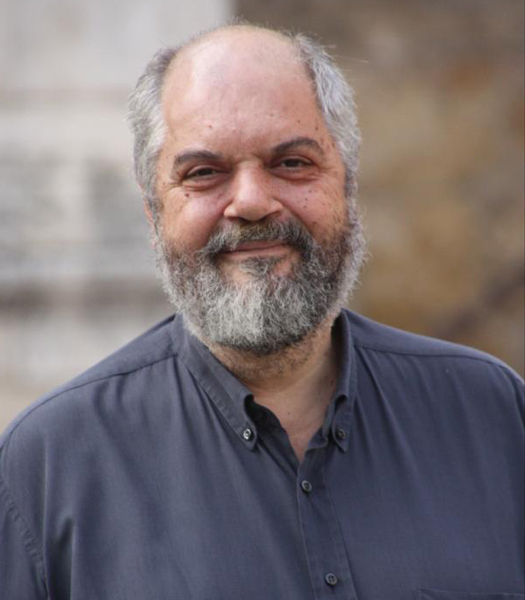
Pier Paolo Di Fiore is Full Professor of General Pathology at the University of Milan and Director of the Novel Diagnostics Program at the European Institute of Oncology (IEO) in Milan. He has dedicated his scientific career to deciphering the molecular mechanisms of oncogenic transformation, with particular emphasis on endocytosis and cancer stem cells, and to the application of ‘omics’ technologies to human cancers for the development of novel clinical tools for cancer management. Di Fiore’s work has helped redefine our understanding of endocytosis from being simply a mechanism for receptor attenuation to that of a master organizer of intracellular signaling, providing both spatial and temporal dimensions to signaling. He has also characterized molecular pathways critical to cancer stem cell biology and identified several diagnostic and prognostic signatures for breast and lung cancer.
Di Fiore’s scientific accomplishments are widely recognized: he has published approximately 300 papers and book chapters, received numerous international awards, is an EMBO member, a member of the Accademia dei Lincei, and past president and member of the ABCD society.
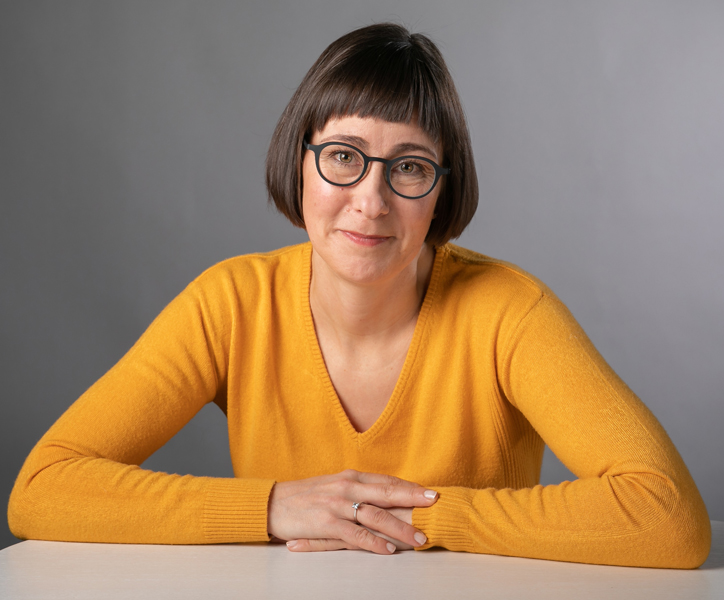
Johanna Ivaska is currently a Finnish Cancer Institute K. Albin Johansson Research Professor. She is also Professor of Molecular Cell Biology at Turku Bioscience Center at the University of Turku in Finland. She was nominated EMBO member 2015 and EMBO Council member 2023-. After obtaining her PhD at the University of Turku in 2000 she did a post-doc in the laboratory of Peter Parker in CR-UK London Research Institute. She moved to VTT technical Research Centre of Finland to establish her research group “Cell adhesion and cancer” in 2003 and in 2013 moved to her current position in University of Turku. In 2014 she was a Visiting Professor at Institute Curie in Paris and currently she is an Affiliate Professor at University of Glasgow and CR-UK Beatson Institute for Cancer Research. Her main research interests relate to the biological role of integrins in cancer progression. The current main research focus are integrin mediated cell adhesion and migration, cell-matrix interactions and mechanosensing as well as molecular mechanisms governing endosomal traffic of integrins and growth factor receptors in cancer. Her research is currently funded by grants from the Academy of Finland and national foundations like the Jane and Aatos Erkko Foundation, Sigrid Juselius Foundation and the Finnish Cancer Organization. She is director of Academy of Finland Center of Excellence in Biological Barrier Mechanics and Disease 2022-2029. She is a scientific editor for JCB (since 2016) and editorial and advisory board member of several journals such as Current Biology, Cell Reports, J. Cell. Sci, Current Opinion in Cell Biology, Molecular Oncology and Trends in Cell Biology.
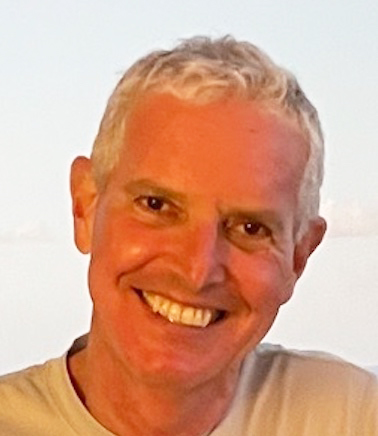
Seeing is believing; visual observations are a vital part of scientific studies. They are also key to the communication of science to the public and the participation of the public in the importance of scientific research and we use them to transmit knowledge and interpretation.
Direct observation of molecular events in vivo is a key goal of contemporary microscopy. Three recently developed forms of optical microscopy available in our laboratory -- Lattice Light Sheet Microscopy (LLSM), Lattice Light Sheet Microscopy optimized with Adaptive Optics (AO-LLSM) and focused ion beam scanning electron microscopy (FIB-SEM) -- are poised to bridge the gap between molecules and cells, either as independent entities in culture, as components of organoids, or as components of living tissues. The richness and magnitude of the data over periods ranging from seconds to hours, create new challenges for obtaining quantitative representations of the observed dynamics and for deriving accurate and comprehensive models for the underlying mechanisms needed to address problems in cell physiology and vertebrate development.
Our research program combines these frontier optical-imaging modalities with Artificial Intelligence Deep and Machine Learning methods to examine cellular membrane remodeling processes exemplified by cell size regulation and organization of the ER during cell division, post mitotic formation of nuclear pores complexes, organelle biogenesis, generation of intraluminal vesicles in endosomes, endosomal traffic and endosomal escape, immune responsiveness, lipid homeostasis, cell-cell recognition, and the interaction dynamics of SARS-CoV-2 or other viruses with host cells during early stages of infection.
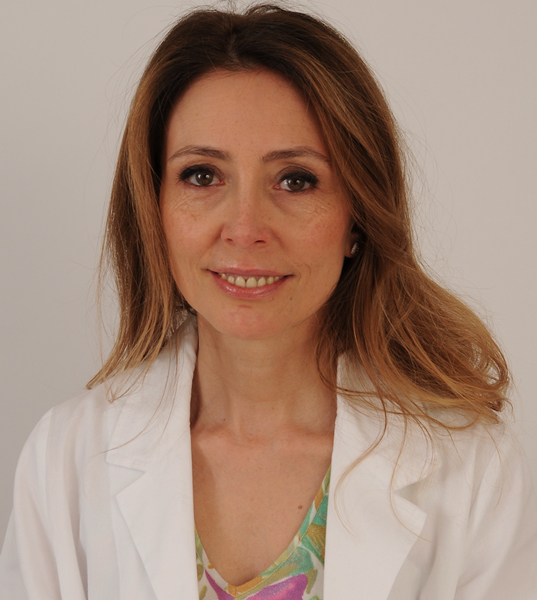
Letizia Lanzetti is Associate Professor in Biochemistry at the Department of Oncology, University of Torino. She runs the Membrane Trafficking Laboratory at the Candiolo Cancer Institute.
Her major contribution relates to the study of the crosstalk between endocytosis and signalling in cancer cells. Research in her lab addressed the effects of this interplay in the dividing cell and during the execution of motility programs. More recently, the lab focused on how molecular alterations of endocytic proteins in cancer promote metabolic adaptation.
Her research received support from several national and international agency including AIRC (Italian Association for Cancer Research), the European Community (Specific Targeted Research Project), The Worldwide Cancer Research, the Italian Ministry of Health and the Fondazione Piemontese per la Ricerca sul Cancro. She is an active member of the ABCD board since 2017 and the Chairperson of the 2023 edition of the ABCD National Conference.
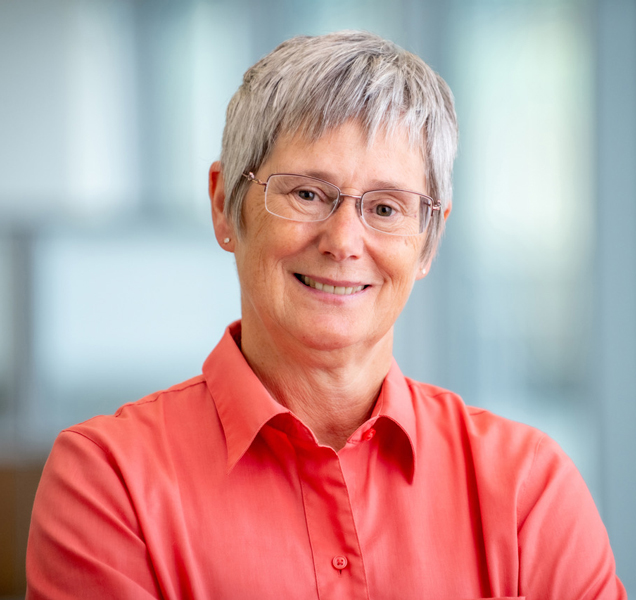
Schmid’s highly collaborative laboratory at the Scripps Research Institute (1988-2012) and then UT Southwestern (2012-2020), applied cell and molecular biology, biochemistry, biophysics, structural biology, and quantitative live cell microscopy to define the molecular mechanisms underlying clathrin-mediated endocytosis; with particular focus on the paradigmatic fission GTPase, dynamin. Schmid’s work, published in over 170 articles and reviews, has been recognized by numerous awards, including her election to the National Academy of Sciences in 2020. She has held many leadership positions, including Chair of Cell Biology at Scripps (2001-2012) and UTSW (2012-2020); Founding Editor of Traffic and Editor-in-chief of MBoC (2004-2010) and President of the American Society for Cell Biology (2011). She currently serves as the inaugural Chief Scientific Officer of the Chan Zuckerberg Biohub, an independently funded biomedical research institute that partners with Stanford, UC San Francisco and Berkeley to understand the mechanisms underlying diseases and develop new technologies that can lead to actionable diagnostics and effective therapies.
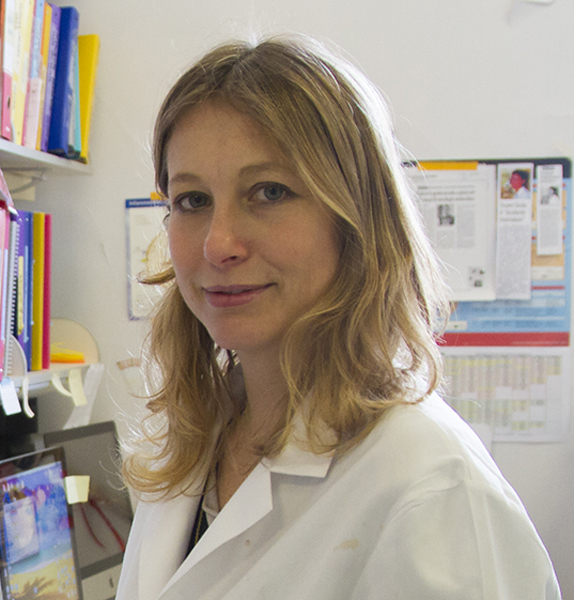
Sara Sigismund is Associate Professor at the University of Milan and leads the Endocytosis Research team at the European Institute of Oncology, Milan. Her long-standing research goal is to understand the role of endocytosis in the regulation of EGFR signaling. Her work led to the discovery of a novel mechanism of non-clathrin endocytosis (NCE), involving contact sites between the endoplasmic reticulum and the plasma membrane, critical for EGFR endocytosis and degradation at high ligand dose. Her current research interests include the elucidation of the molecular mechanism of EGFR-NCE, its interplay with mitochondrial functions and its functional significance in normal physiology and cancer.
Prof. Sigismund’s work received fundings from the European Research Council, The Worldwide Cancer Research, the Italian Association of Cancer Research, and the Italian Ministry of Education, University and Research. She is actively involved in promoting Science in Italy through the ABCD society, of which she was Council Member and Treasurer and, starting from January 2023, she is President of ABCD. She is also member of the ERC in Italy association that promotes fundamental research in Italy.
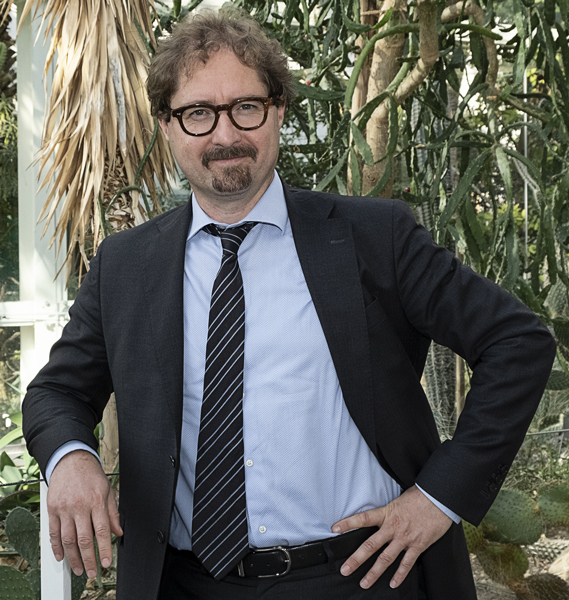
Telmo Pievani (1970) is Full Professor at the Department of Biology, University of Padua, where he covers the first Italian chair of Philosophy of Biological Sciences since 2015. After Ph.D. researches in USA, he has been Professor of Philosophy of Science at the University of Milan Bicocca (2001-2012). Past President (2017-2019) of the Italian Society of Evolutionary Biology, he is Fellow of several academic Institutions and scientific societies. He is member of the editorial boards of Evolution: Education and Outreach, Evolutionary Biology, Rendiconti Lincei Sc. Fis. Nat., Nature Italy, Istituto Treccani, and the Italian edition of Scientific American. He is author of 322 publications, included several books: “Introduction to Philosophy of Biology” (Laterza, 2005); “The Theory of Evolution” (Il Mulino, 2010); “Born to Believe” (Codice Edizioni, 2008, with V. Girotto and G. Vallortigara); “The Unexpected Life” (Cortina Editore, 2011); “Homo sapiens. The Great History of Human Diversity” (Codice Edizioni, 2011, with L.L. Cavalli Sforza), “Introduction to Darwin” (Laterza, 2012); “The End of the World” (Il Mulino, 2012); “Freedom of migration” (Einaudi, 2016, with V. Calzolaio); “How we will be” (Codice Edizioni, 2016, with L. De Biase); “Imperfection. A natural history” (Cortina, 2019, MIT Press, 2022); “The Earth after us” (Contrasto, 2019; with F. Lanting’s photos), “Finitude” (Cortina, 2020); “Serendipity” (Cortina, 2021); “Nature is bigger than us” (Solferino, 2022). Fellow of the Scientific Board of science festivals in Italy, since 2014 he is fellow of the International Scientific Council of MUSE in Trento. He is Director of “Pikaia”, the Italian website dedicated to evolution (www.pikaia.eu). He is Director of the University of Padua web magazine, Il Bo LIVE (https://ilbolive.unipd.it). With Niles Eldredge, Ian Tattersall and Luigi Luca Cavalli-Sforza, he curated International science exhibitions. Author of books for children and theatre scientific shows, he collaborates with RAI radio and TV projects, he is a columnist for Il Corriere della Sera, and the magazines Le Scienze and Micromega. Personal website: www.telmopievani.com